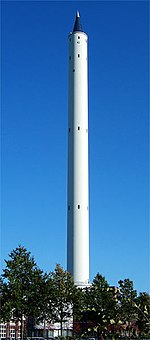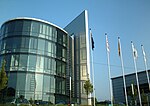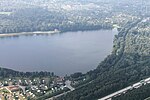City University of Applied Sciences

The City University of Applied Sciences (German: Hochschule Bremen) is a public Fachhochschule, a University of Applied Sciences, located in Bremen, Germany. In 1982, this University evolved from the fusion of four Universities of Applied Sciences: the Universities for technology, business, social pedagogy and social economy, and nautics. The history of the City University of Applied Sciences traces back to the foundation of the Technikum, a School for Civil Engineering and Shipping in 1894 and the foundation of the Social Women's' School, the first School of Social Work in Bremen in 1918.Hochschule Bremen is a member of the UAS7 (Seven Universities of Applied Sciences) network that forms a strategic alliance of seven leading German Universities of Applied Sciences in teaching and research.
Excerpt from the Wikipedia article City University of Applied Sciences (License: CC BY-SA 3.0, Authors, Images).City University of Applied Sciences
Bibliothekstraße, Bremen Horn-Lehe (Bremen-Ost)
Geographical coordinates (GPS) Address Phone number Website Nearby Places Show on map
Geographical coordinates (GPS)
| Latitude | Longitude |
|---|---|
| N 53.108611111111 ° | E 8.8536111111111 ° |
Address
Universität Bremen
Bibliothekstraße 1
28359 Bremen, Horn-Lehe (Bremen-Ost)
Free Hanseatic City of Bremen, Germany
Open on Google Maps








